Explanation of my 10 Ballon d'Or 1964
This is my ranking, my opinion on the Ballon d'Or of the year 1964. This ranking is based on the calendar year, not the season. What counts for this ranking is the player's regularity over the calendar year, the number of matches played, the ability to raise his level in big games, statistics (goals, assists, clean sheets, goals conceded, etc.) and trophies won (collective and individual).
#10 Uwe Seeler
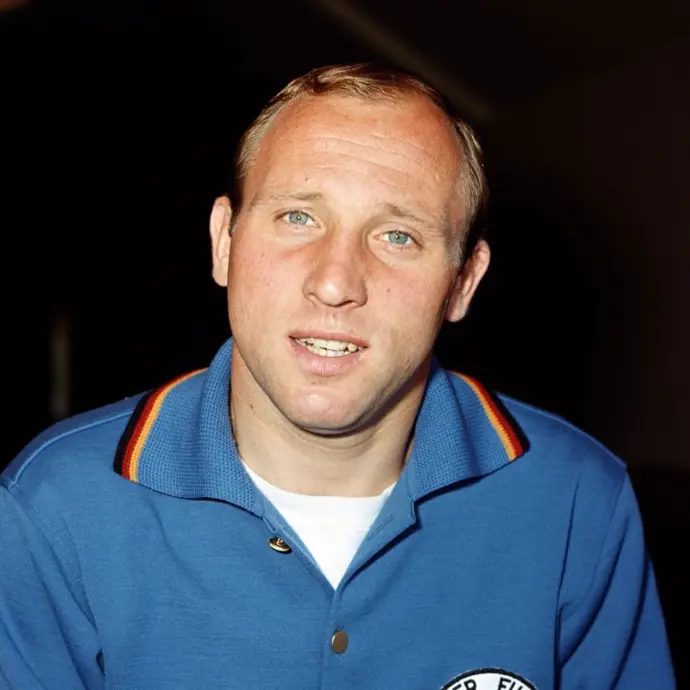
- Age : 27/28 years old
- Club : Hamburg SV
- Statistics : 35 games, 34 goals, / assists
- Trophies : /
- Individual Awards : German POTY, Bundesliga TOTY, Bundesliga Golden Shoe (30 goals)
In the calendar year 1964, Uwe Seeler was the beating heart of German football—a striker whose loyalty, leadership, and lethal finishing made him a national treasure. Already a legend at Hamburger SV, Seeler elevated his legacy with a season that blended personal triumph and enduring influence. At club level, Seeler was unstoppable. He finished as the top scorer in the Bundesliga’s inaugural season with 30 goals, a feat that crowned him the league’s first-ever goal king. His performances helped HSV remain competitive in the newly formed top flight, and his consistency in front of goal was unmatched. Whether with powerful headers or instinctive finishes, Seeler delivered week after week. His brilliance earned him the title of German Footballer of the Year for the second time, having previously won it in 1960. In an era dominated by tactical rigidity, Seeler’s dynamism and humility made him a fan favorite and a role model across the country.
#9 Ferenc Bene
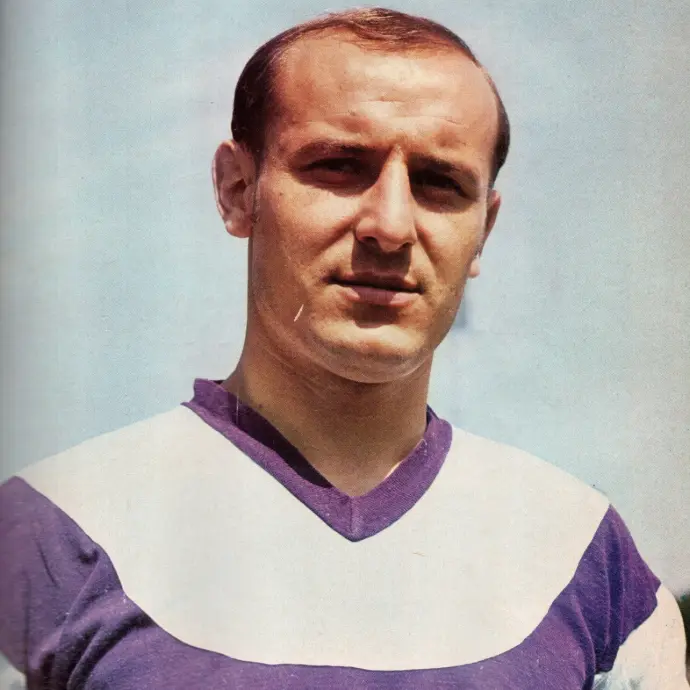
- Age : 19 years old
- Club : Ujpest FC
- Statistics : 36 games, 37 goals, / assists
- Trophies : Olympic Games
- Individual Awards : Hungarian POTY, Euro TOTT, Euro Golden Shoe (2 goals), Olympic Games POTT, Olympic Games TOTT, Olympic Games Golden Shoe (12 goals)
In the calendar year 1964, Ferenc Bene exploded onto the international stage as Hungary’s golden-footed prodigy, delivering one of the most prolific and decorated seasons in football history. At just 19 years old, Bene combined youthful energy with clinical precision to become a dual tournament top scorer and a national hero. At club level, Bene was a rising force for Újpesti Dózsa, scoring 20 goals in 26 league matches and helping the club remain a contender in Hungary’s top flight. His speed, strength, and instinctive finishing made him a nightmare for defenders and a cornerstone of the team’s attack. Internationally, Bene was unstoppable. In the 1964 European Nations’ Cup, he scored in every knockout round—against France in the quarterfinals, Spain in the semifinals, and Denmark in the third-place match—finishing as joint top scorer with 2 goals and earning a spot in the UEFA Team of the Tournament. Just months later, Bene led Hungary to Olympic gold in Tokyo, delivering a jaw-dropping 12 goals in 5 matches, including six goals against Morocco, four against the United Arab Republic, and the winning goal in the final against Czechoslovakia1. His tally made him the top scorer of the tournament, and one of only four players in history to score two hat-tricks in Olympic football. His brilliance earned him the title of Hungarian Footballer of the Year, and his performances were hailed as the arrival of a new superstar.
#8 Jimmy Greaves
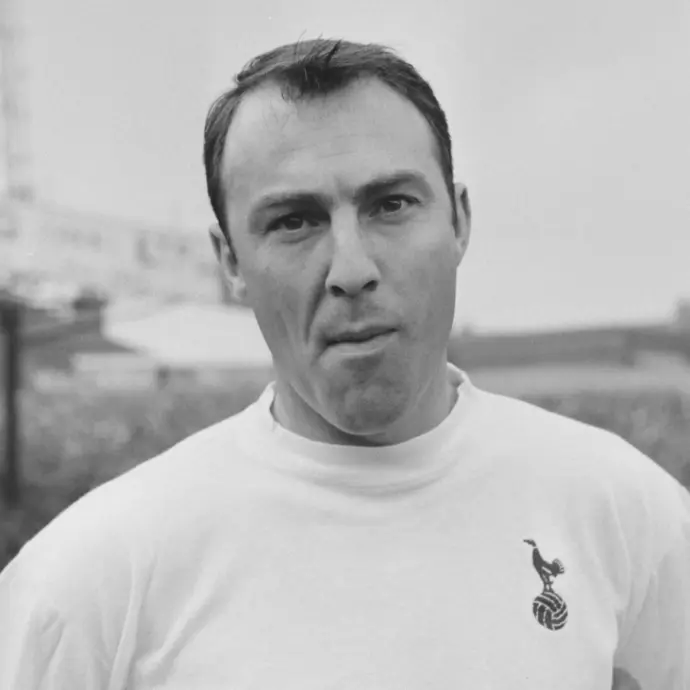
- Age : 23/24 years old
- Club : Tottenham Hotspur
- Statistics : 53 games, 38 goals, / assists
- Trophies : British Home Championship
- Individual Awards : Premier League TOTY, Premier League Golden Shoe (35 goals)
In the calendar year 1964, Jimmy Greaves was the undisputed king of English goalscoring—an artist in the penalty box whose instinct, elegance, and consistency made him a living legend. Already a household name, Greaves delivered a season that reaffirmed his status as one of the greatest strikers the game has ever seen. At club level, Greaves was the spearhead of Tottenham Hotspur’s attack, finishing as the First Division’s top scorer for the fourth time with 35 goals in 41 league matches. His ability to glide past defenders and “pass” the ball into the net—never rushed, never forced—was pure poetry. Whether scoring with his left, right, or head, Greaves made goals look effortless. In total, he netted 41 goals in 51 matches across all competitions, including strikes in the FA Cup and European fixtures, maintaining a scoring rate that defied belief. His performances kept Spurs competitive and thrilling, even if silverware eluded them that season. Internationally, Greaves continued to shine for England, adding to his remarkable tally of 44 goals in 57 caps. Though 1964 didn’t feature a major tournament, he was instrumental in the British Home Championship, helping England share the title and scoring crucial goals against rivals like Scotland and Wales.
#7 Lev Yashin
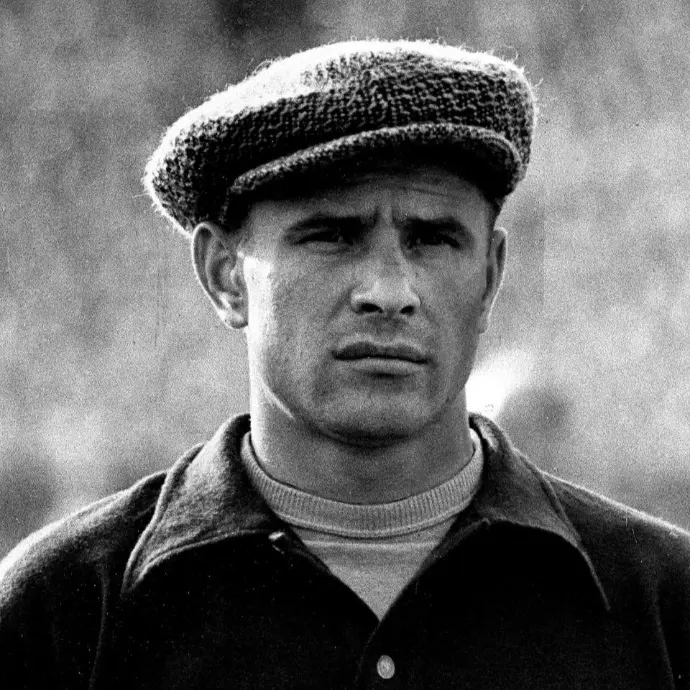
- Age : 34/35 years old
- Club : Dynamo Moscow
- Statistics : 37 games, 33 goals conceded, 14 clean sheets
- Trophies : Finalist Euro
- Individual Awards : Euro TOTT, USSR League TOTY
In the calendar year 1964, Lev Yashin reaffirmed his status as football’s most commanding goalkeeper, combining acrobatic brilliance with unshakable leadership. Already revered in the Soviet Union and feared by strikers around the world, Yashin spent the year adding new chapters to his mythic legacy. At club level, he remained the bedrock of Dynamo Moscow, where his cat-like reflexes, towering presence, and unmatched anticipation kept opponents at bay. Even without a league title, his performances were consistently heroic—whether diving to fingertip saves or charging off his line to smother threats before they could develop. Dynamo finished in the top tier of the Soviet Top League, a testament to Yashin’s enduring brilliance. Internationally, Yashin was the last line of defense for the Soviet Union in the European Nations’ Cup. He played a crucial role in guiding the team to the final, dispatching Denmark in the semifinals thanks in part to his crucial saves. Though the USSR fell to Spain in a hard-fought final in Madrid, Yashin’s poise and authority earned admiration across the continent. His ability to organize his backline and dominate his penalty area elevated the entire Soviet squad.
#6 Amancio
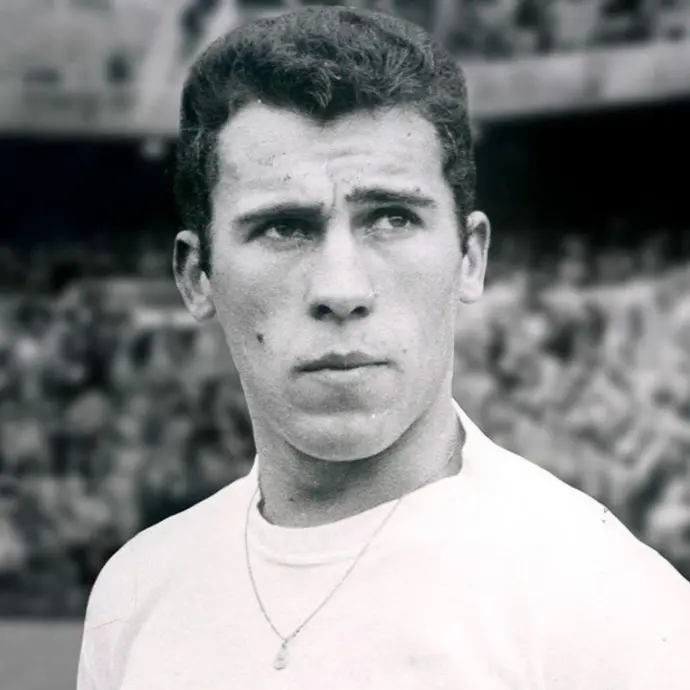
- Age : 24/25 years old
- Club : Real Madrid
- Statistics : 43 games, 21 goals, / assists
- Trophies : Euro, Liga
- Individual Awards :
Euro TOTT, Liga TOTY
In the calendar year 1964, Amancio Amaro—nicknamed El Brujo (The Wizard)—was the creative spark of Spanish football, dazzling fans with his dribbling, vision, and clutch performances. Already a rising star at Real Madrid, Amancio elevated his status to national hero with a year that blended domestic dominance and international glory. At club level, Amancio helped Real Madrid clinch the La Liga title, their second consecutive championship. He scored 9 goals in 22 league matches, and added 6 goals in 5 European Cup appearances, including a brace against FC Zürich and a crucial strike against Benfica in the quarterfinals. Though Madrid fell to Inter Milan in the final, Amancio’s performances were electric—his flair and creativity made him one of the most feared wingers in Europe. Internationally, Amancio was instrumental in Spain’s historic triumph at the 1964 European Nations’ Cup. He scored the winning goal in extra time against Hungary in the semifinal, and played a key role in the 2–1 victory over the Soviet Union in the final at the Santiago Bernabéu1. His contributions helped Spain lift their first major international trophy, and his performances earned him a place in the UEFA Team of the Tournament.
#5 Sandro Mazzola
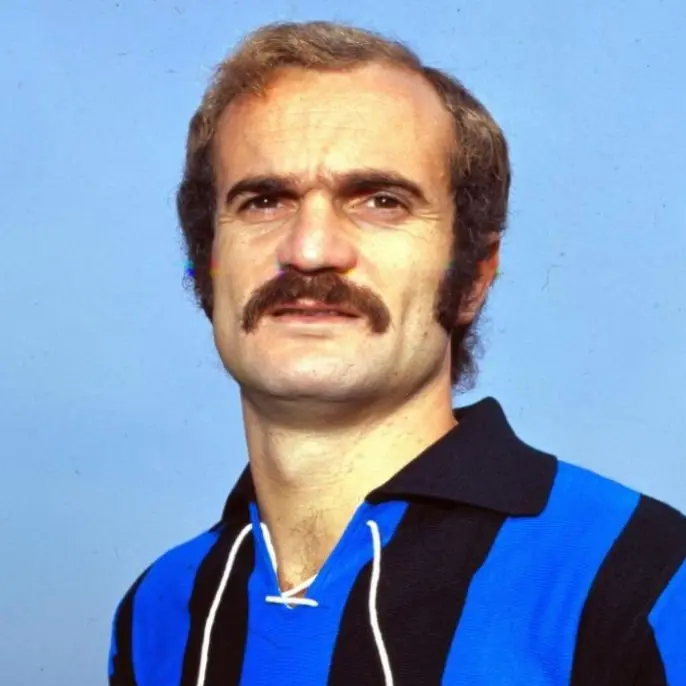
- Age : 21/22 years old
- Club : Inter Milan
- Statistics : 41 games, 24 goals, / assists
- Trophies : Champions League, Intercontinental Cup, Serie A Vice-Champion
- Individual Awards : Champions League TOTY, Champions League Golden Shoe (7 goals)
In the calendar year 1964, Sandro Mazzola emerged as the beating heart of La Grande Inter, orchestrating one of the most iconic campaigns in European football history. Already a rising star, Mazzola transformed into a legend with performances that blended elegance, grit, and decisive brilliance. At club level, Mazzola led Inter Milan to their first-ever European Cup triumph, scoring twice in the final against Real Madrid to seal a 3–1 victory in Vienna. His seven goals throughout the tournament made him the top scorer, and his ability to glide between midfield and attack gave Helenio Herrera’s side a tactical edge that few could match. In Serie A, Mazzola continued to shine, scoring 13 goals and helping Inter finish second in the league. His versatility—capable of playing as a forward or attacking midfielder—allowed him to dictate tempo, unlock defenses, and deliver in clutch moments. Globally, Mazzola and Inter added the Intercontinental Cup to their trophy haul, defeating Independiente over two legs. Mazzola scored in the return leg in Milan, helping Inter claim world supremacy and cement their place among football’s elite. Internationally, Mazzola earned his first caps for Italy, debuting against Brazil in May and scoring from the penalty spot. Though the national team was still rebuilding, his arrival signaled a new era of creativity and leadership.
#4 Denis Law
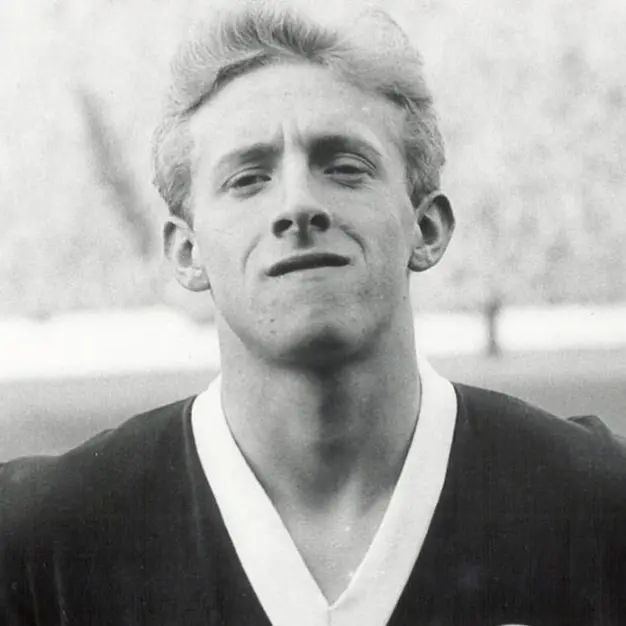
- Age : 23/24 years old
- Club : Manchester United
- Statistics : 47 games, 48 goals, 7 assists
- Trophies : British Home Championship, Premier League Vice-Champion
- Individual Awards : Premier League TOTY
In the calendar year 1964, Denis Law was a force of nature—The King of Manchester—whose explosive form lit up English and European football. Already a fan favorite at Manchester United, Law delivered a season so prolific, so electrifying, that it became the benchmark for goal-scoring brilliance. At club level, Law was unstoppable. He scored a staggering 48 goals in 47 games. His goals came in every imaginable fashion—headers, volleys, toe-pokes, and thunderous drives—each one a dagger to defenders and a delight to fans. In the FA Cup, Law was instrumental in United’s triumph, scoring in every round and netting the opener in the final against Leicester City, which ended in a 3–1 victory. It was United’s third FA Cup title, and Law’s contribution was nothing short of heroic. On the European stage, Law made headlines in the Cup Winners’ Cup, scoring six goals in six matches, including a hat-trick against Willem II and a treble against Sporting CP. Though United fell short in the quarterfinals, Law’s performances captivated the continent and elevated his reputation beyond British shores.
#3 Eusébio
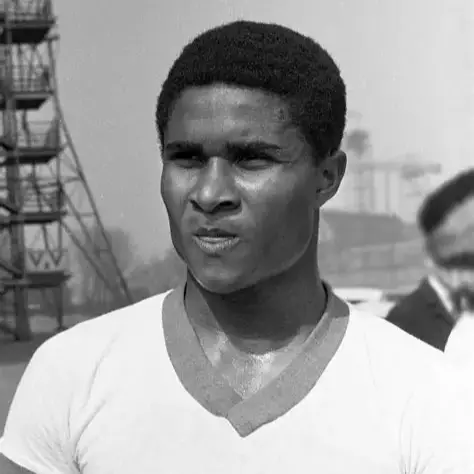
- Age : 22 years old
- Club : Benfica Lisbon
- Statistics : 39 games, 57 goals, / assists
- Trophies : Portuguese League, Portuguese Cup, Ribeiro dos Reis Cup
- Individual Awards : Portuguese League TOTY, Portuguese League Golden Shoe (28 goals)
In the calendar year 1964, Eusébio da Silva Ferreira was already a phenomenon—O Pantera Negra—whose brilliance on the pitch was matched only by his growing influence across Europe. At just 22 years old, he delivered a season of staggering consistency and explosive impact, cementing his place among football’s elite. At club level, Eusébio was the driving force behind Benfica’s domestic double, leading the Lisbon giants to both the Primeira Divisão title and the Taça de Portugal. He finished as the league’s top scorer with 28 goals, dazzling fans with his trademark acceleration, powerful right-footed strikes, and unshakable composure in front of goal. In the European Cup, Benfica’s campaign was cut short in the Round of 16 by Borussia Dortmund, but Eusébio’s performances remained electric. His presence alone was enough to tilt matches, and his reputation as one of the continent’s most feared forwards only grew.
#2 Luis Suárez
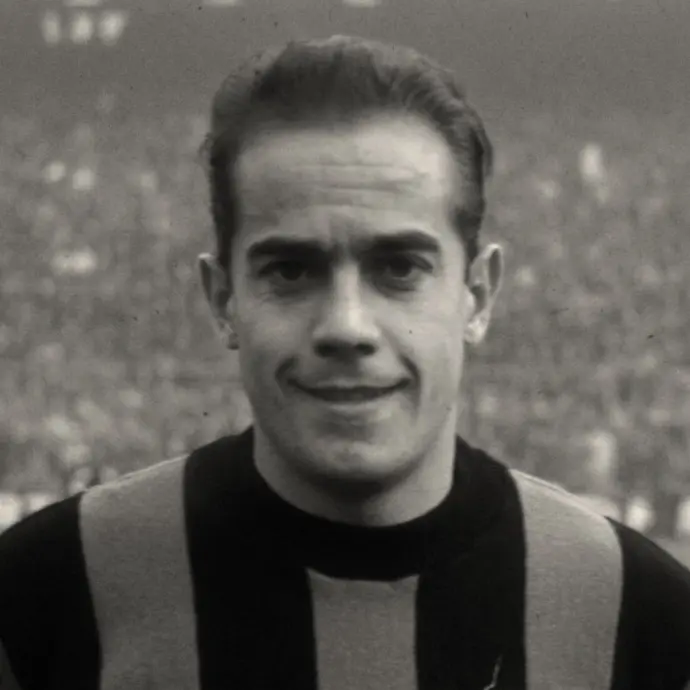
- Age : 28/29 years old
- Club : Inter Milan
- Statistics : 37 games, 7 goals, / assists
- Trophies : Euro, Champions League, Intercontinental Cup, Serie A Vice-Champion
- Individual Awards : Euro TOTT, Champions League TOTY, Champions League Golden Shoe (7 goals)
In the calendar year 1964, Luis Suárez Miramontes—El Arquitecto—was the cerebral engine behind two of the most prestigious triumphs in football: Inter Milan’s European Cup victory and Spain’s historic win at the European Nations’ Cup. Already a master of midfield artistry, Suárez elevated his legacy with a campaign defined by elegance, intelligence, and total control. At club level, Suárez was the creative heartbeat of Helenio Herrera’s “Grande Inter”, guiding the Nerazzurri to their first European Cup title. In the final against Real Madrid, Suárez’s vision and passing dictated the rhythm of the match, helping Inter secure a 3–1 victory in Vienna. His ability to orchestrate play from deep, break lines with precision, and maintain composure under pressure made him indispensable. In Serie A, Suárez continued to shine, contributing to Inter’s strong domestic campaign and laying the groundwork for their league triumph the following season. His role wasn’t about goals—it was about geometry, tempo, and tactical mastery. Every pass was a calculation, every movement a blueprint. Internationally, Suárez led Spain to their first major international title, winning the 1964 European Nations’ Cup on home soil. He was the architect behind key goals in both the semifinal against Hungary and the final against the Soviet Union, where Spain triumphed 2–1 at the Santiago Bernabéu. His leadership and experience were vital in a squad that thrived on cohesion and clarity.
Winner : Pelé
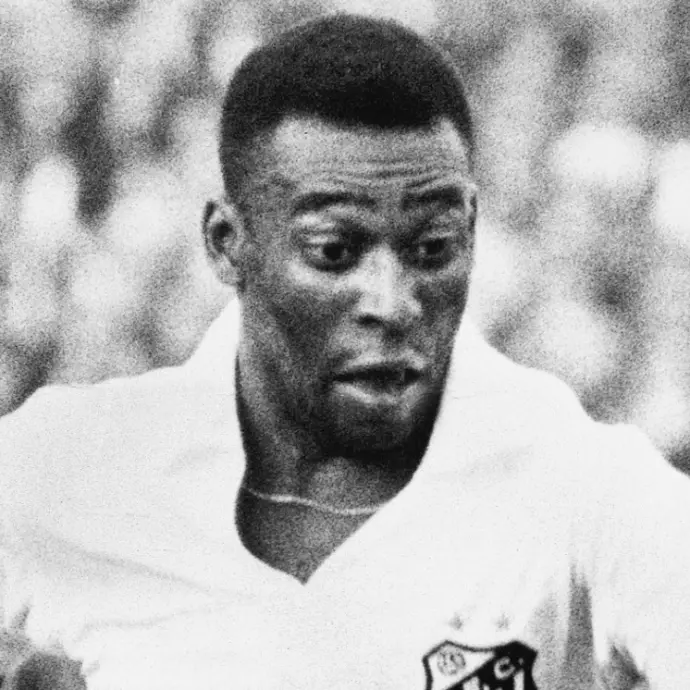
- Age : 23/24 years old
- Club : Santos FC
- Statistics : 38 games, 54 goals, 25 assists
- Trophies : Brazilian League, São Paulo Championship, Rio-São Paulo Tournament
- Individual Awards : Taça Brasil Golden Shoe (7 goals), São Paulo Championship Golden Shoe (34 goals)
In the calendar year 1964, Pelé was at the peak of his powers—O Rei in full flight—delivering a season of staggering dominance and unforgettable brilliance. Already a two-time world champion with Brazil, Pelé spent the year elevating Santos FC to new heights and reaffirming his status as football’s most electrifying figure. At club level, Pelé was unstoppable. He led Santos to the Campeonato Paulista title, scoring 34 goals in 30 matches, including a legendary eight-goal performance in an 11–0 demolition of Botafogo-SP—a career high and one of the most iconic individual displays in football history. Santos also won the Taça Brasil, Brazil’s national championship, for the fourth consecutive year, with Pelé as its undisputed talisman. In international friendlies and global tours, Pelé continued to mesmerize audiences. Santos played across Europe and Latin America, and wherever Pelé went, stadiums filled and defenders trembled. His combination of speed, strength, and sublime technique made him a spectacle unto himself—scoring goals with both feet, his head, and even from midfield. Internationally, Pelé remained a fixture in the Brazilian national team, though 1964 featured no major tournaments. He played in several friendlies, continuing to build chemistry with teammates and maintain his role as Brazil’s spiritual leader on the pitch.